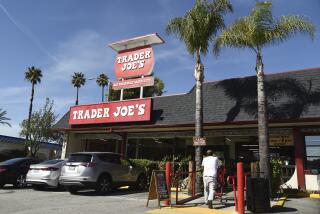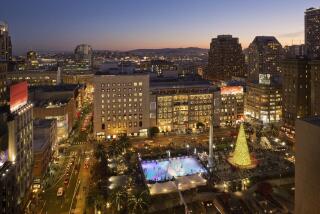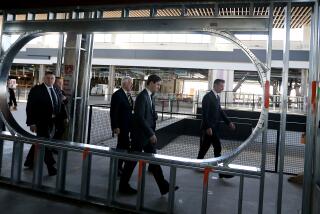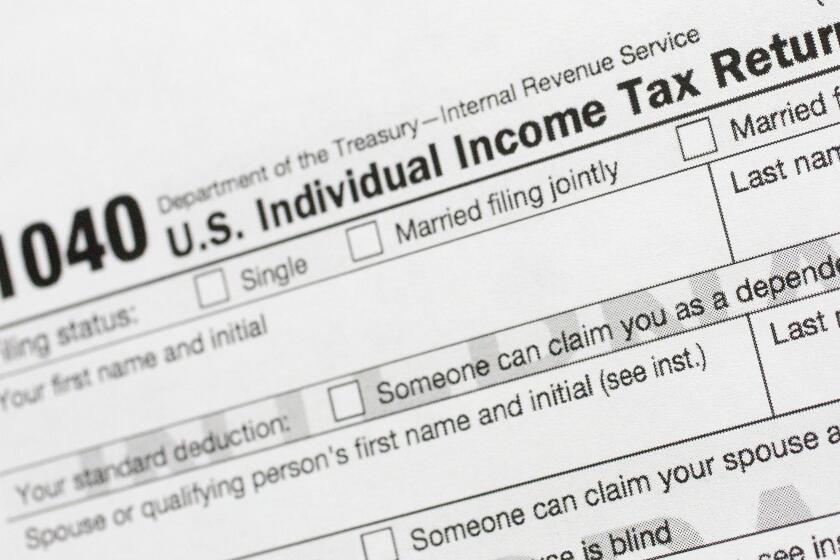New Apple Store at Stanford mall highlights retail challenges
During the iPhone announcement event at Apple’s headquarters last week, chief executive Tim Cook took a few minutes to plug a project that hadn’t gotten as much attention as the company’s new gadgets or iOS 7.
On the screen behind him on the stage, Cook flashed a picture of the company’s new store at the Stanford Shopping Center.
“This month, our attention turns home,” Cook said.
Photos: Top 11 hidden, cool features in Apple’s iOS 7
The company had previously had a small, 1,100-square-foot store at the Stanford mall.
“Despite the size of it, our teams have served 5 million customers there, in just nine years,” Cook said. “They’ve recently been serving 2,000 per day.”
With the old store bursting at the seams, Apple began building a new, bigger one across from the mall.
After months of semi-secrecy, the new store opened Sept. 7, with the obligatory line of eager fans awaiting outside.
The store is over eight times as large as the old one. But its design is also unique among Apple stores.
It features what Apple calls a “pavilion” design. There is a front room, where the gadgets are on display. Then there is a second, back room designed for service, the Apple Genius Bar, workshops and other educational purposes.
“This store is a gorgeous pavilion design with a glass on three sides and a cantilevered roof,” Cook said. “It’s an architectural marvel. It’s absolutely stunning.”
The store also represents the increasingly complex challenge Apple faces with its retail division. The launch of the stores more than a decade ago has been a cornerstone of Apple’s success.
Even as Apple continues to open in new regions, it also must renovate or relocate and expand some of these original stores.
This fiscal year, Apple expects to open 27 new retail stores, with more than three-quarters located outside of U.S.
In the most recent earnings call with analysts, Apple chief financial officer Peter Oppenheimer said the company had relocated four stores in the June quarter. The company expects to complete a total of 23 relocations in fiscal 2013 ending Sept. 30.
So far, Apple has spent spent $309 million on retail store construction, a figure expected to top $600 million by the end of the year.
Even amid this construction effort, analysts have grown worried that Apple is losing a bit of its retail muscle.
In the most recent quarter, Apple reported that retail sales fell $10 million compared to the same period a year ago. Apple cited decreased sales of iPads and iPods as the main reason.
Average revenue per store also slipped during the first nine months of the 2013 fiscal year to $39.3 million from $40.3 million for the same period a year ago.
Meanwhile, Apple has been pressing ahead on these expansions and renovations without the benefit of a head of retail.
In November, Apple fired its senior vice president of retail, John Browett, who had only been on the job a few months. There’s been no sign of a replacement.
With a host of new product launches this month and next, Apple can expect retails sales to get a boost. And both the new and renovated stores should also help.
But who is going to shape that strategy remains one of the bigger question marks facing the company in the coming months.
If the new Stanford store is any sign, however, it’s clear that the company is as committed to its retail strategy as ever.
And given the attention to the store’s design and impact, Apple is no doubt looking for someone who will bring that same touch and passion the company brings to its gadgets. And at the same time, the new leader must also be able to offer a vision for how to keep this retail success going for another decade.
ALSO:
Apple’s new iPhones go on sale; fight breaks out at store
Apple fans line up to buy iPhone 5s, 5c; gold in short supply
Sights and sounds from Apple’s launch day for iPhone 5s and 5c
More to Read
Inside the business of entertainment
The Wide Shot brings you news, analysis and insights on everything from streaming wars to production — and what it all means for the future.
You may occasionally receive promotional content from the Los Angeles Times.











